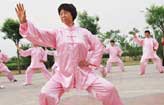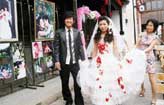Hot issues
Famous biologist attacks CAS after rejection
Updated: 2011-08-18 15:36
By Gao Qihui (chinadaily.com.cn)
A leading dean and famous biologist at one of country's top universities has been rejected from the highest level of national honor for Chinese scientists, the Beijing Morning Post reported Thursday.
Rao Yi, who is the dean of the School of Life Sciences of Peking University, was excluded from membership of the Chinese Academy of Sciences (CAS) where he is a researcher, in the first round of voting sparking a debate about election procedures.
On Wednesday, at the same time the results were released, Rao published a blog he claimed he had written in March stating that he would not be accepted into the elite group. He said he would never be willing to stand as a membership candidate again for the CAS, one of China's leading research institutes.
He told a reporter that anyone studying biology will know the reason of his exclusion.
Rao is internationally well-known for his research on neurology and was the Director of Research at the Feinberg Clinical Neuroscience Research Institute at Northwestern University in the US before returning to China in 2007 as the dean of Peking University School of Life Sciences. His return shocked the China’s scientific community.
Some have suggested the move should be a source of great regret for China's academicians as Rao has contributed more to the science than many other current members of the academy.
Fang Zhouzi, a writer known as "science cop" commented "I think it is humiliating that Rao Yi was excluded in the first round of the competition as even Xiao Chuanguo (a medical scientist who was found guilty of orchestrating a assault after being accused of academic misconduct) was advanced to the second round before."
However, Rao is well-known to the Chinese public for his bold and incisive criticism to the country’s scientific community.
He said in one of his blogs that the China's scientific circle is fickle and more than 90 percent of biology professors in China spent less than 10 percent of their time listening to academic reports.
Rao added that some do not listen to the reports of key foreign scientists, but domestic CAS academicians to gain votes at the academician elections.
In September 2010 he published a joint editorial in the weekly Science claiming the current distribution of funding for scientific research is more determined by personalized networks than academic levels which wastes resources, rots the spirit and hinders innovation.
The CAS expands its academicians once every two years by no more than 60 members.
E-paper

Going with the flow
White-collar workers find a traditional exercise helps them with the frustrations of city life
The light touch
Long way to go
Outdoor success
Specials

Star journalist remembered
Friends, colleagues attended a memorial service to pay tribute to veteran reporter Li Xing in US.

Robots seen as employer-friendly
Robots are not new to industrial manufacturing. They have been in use since the 1960s.

A prosperous future
Wedding website hopes to lure chinese couples
